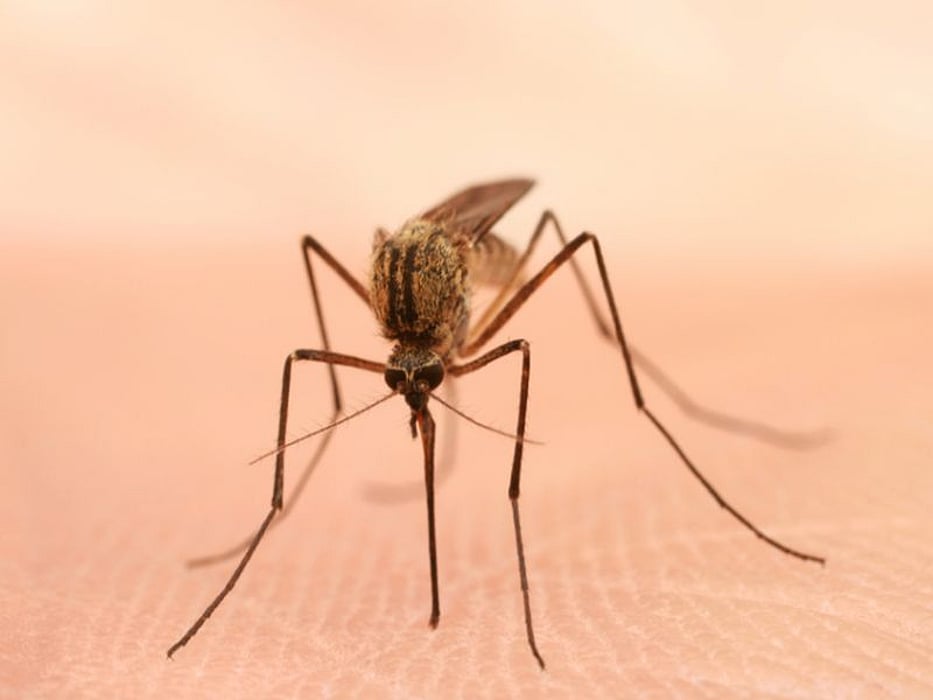Mosquito Spit: It Could Weaken People’s Defense Against Dengue

THURSDAY, April 6, 2023 (HealthDay News) -- A new discovery explains why deadly mosquito-borne dengue viruses are so easily transmitted: The answer may lie in the insect's saliva.
The saliva of mosquitoes infected with dengue viruses contains a substance that thwarts the human immune system, according to an international team of researchers.
This discovery may eventually lead to new ways to prevent infection.
“It is remarkable how clever these viruses are -- they subvert mosquito biology to tamp down our immune responses so that infection can take hold,” said Dr. Mariano Garcia-Blanco, chair of the department of microbiology, immunology and cancer biology at the University of Virginia.
“There is no doubt in my mind that better understanding of the fundamental biology of transmission will eventually lead to effective transmission-blocking measures,” he said in a university news release.
Garcia-Blanco suspects that researchers will find immune-dampening substances with other mosquito-borne infections, too, including Zika, West Nile and yellow fever.
“Our findings are almost certainly going to be applicable to infections with other flaviviruses,” Garcia-Blanco said. “The specific molecules here are unlikely to apply to malaria, but the concept is generalizable to viral infections.”
While dengue has long been an issue in tropical and subtropical areas such as Southeast Asia, Africa and Latin America, it is now also in the southern United States and Europe.
About half the world’s population is at risk for the disease. Roughly 400 million people are infected every year, the researchers say.
During their study, the researchers found that infected mosquitoes’ saliva contained molecules called sfRNAs that can blunt the body’s immune response. Injecting these with the bite makes it more likely that the victim will become infected with dengue, the scientists concluded.
“By introducing this RNA at the biting site, dengue-infected saliva prepares the terrain for an efficient infection and gives the virus an advantage in the first battle between it and our immune defenses,” the researchers wrote.
Scientists who study mosquitoes previously had suspected that the insects’ saliva might contain some type of payload to enhance the potential for infection.
While researchers work on finding new ways to help reduce transmission and control the disease’s spread, they say the best way to avoid getting seriously sick with dengue remains to avoid getting bitten.
Dengue symptoms include fever, nausea and skin rash.
Most people suffer mild cases, but about 1 in 20 develop severe illness that can lead to shock, internal bleeding and death.
The Aedes aegypti species of mosquito is responsible for transmitting the virus. Currently, no treatment exists.
Study findings were published recently in the journal PLOS Pathogens.
More information
The U.S. Centers for Disease Control and Prevention has more on mosquito-borne diseases.
SOURCE: University of Virginia, news release, April 3, 2023
Related Posts
4.4 Million Americans Have Gotten Updated COVID Boosters
FRIDAY, Sept. 23, 2022 (HealthDay News) -- At least 4.4 million Americans have...
Risk for Mental Illness Higher for Children Who Experience Assault
FRIDAY, Aug. 18, 2023 (HealthDay News) -- Children who experience assault have...
AHA News: The Benefits of Adding a Drizzle of Olive Oil to Your Diet
WEDNESDAY, Sept. 28, 2022 (American Heart Association News) -- The ancient...
Intra-Op Liposomal Bupivacaine Beneficial After Spinal Fusion in Scoliosis
FRIDAY, May 12, 2023 (HealthDay News) -- For adolescent idiopathic scoliosis...
